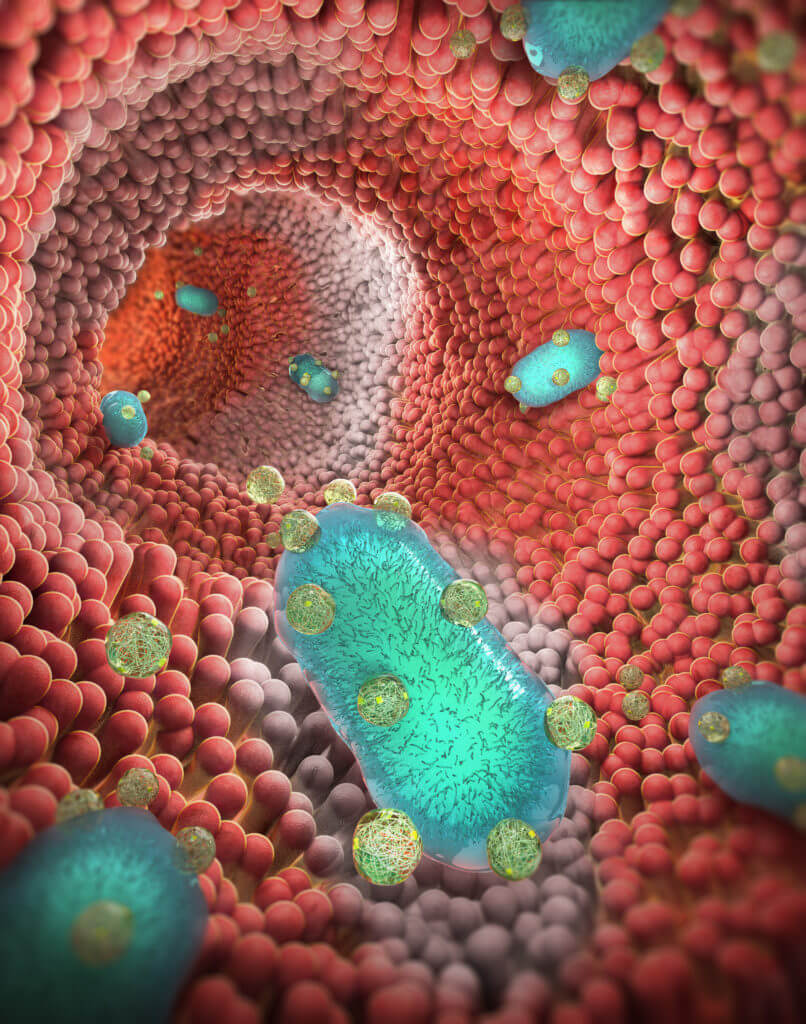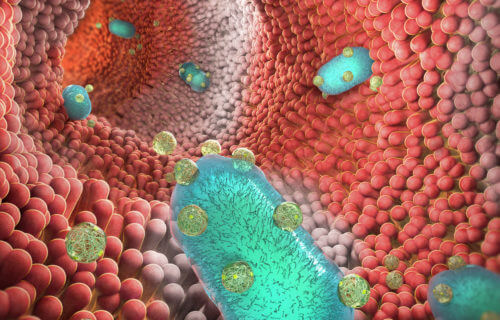MADISON, Wis. — Probiotic “backpacks” could soon help improve the treatment of inflammatory bowel disease (IBD).
Biomedical engineers at the University of Wisconsin–Madison have created a protective casing for gut-friendly bacteria so it can survive contact with stomach acids and other microbes long enough to reproduce and improve gut health.
Experiments show these backpacks are effective in mice, but the researchers say that treating IBD will require more than gut microbial communities.
“IBD is a complicated disease, and you need to attack it at different angles,” says Quanyin Hu, a biomedical engineer and professor in the UW–Madison School of Pharmacy, in a university release.
With the help of his colleagues, Dr. Hu has now devised special nanoparticles that act as backpacks on the shell-protected beneficial bacteria which neutralize molecules that contribute to IBD. The team adds that this could significantly improve and simplify treatment for conditions such as Crohn’s disease and ulcerative colitis.

What causes IBD?
While the root causes of IBD are complex and are still somewhat unclear, one culprit may be the overproduction of molecules known as reactive oxygen species. These molecules are crucial for certain human body functions, but too many of them in the gut can fuel damaging inflammation along the lining of the intestines. The nanoparticle backpacks are made from the powerful anti-inflammatory hyaluronic acid and sulphide, which directly targets the reactive oxygen species.
Dr. Hu’s latest research, published in the journal Science Advances, used mice to show that the probiotic bacteria Escherichia coli Nissle 1917, encased in a protective shell and outfitted with the nanoparticle backpacks, are significantly better at relieving IBD symptoms than their counterparts without the additional gear.
READ: Best Probiotic Supplements Of 2022: Top 4 Gut Health Products Most Recommended By Expert Websites
The researchers estimated the effects of the treatments in two ways: by measuring changes in weight and changes in the colon length of mice with IBD that did and did not receive the treatment. Like humans, mice with IBD commonly experience weight loss and colon shortening as the disease progresses.
Dr. Hu and his colleagues found the mice that received the full treatment experienced the least amount of weight loss and much less colon shortening than their counterparts that received partial or no treatments. Current treatment options depend on the stage and severity of disease, whereas Dr. Hu and his colleagues say they have sought a more holistic treatment that could be effective at any stage.
“That’s the most exciting part of this research for me,” says Hu. “We didn’t want to target a specific IBD stage. We wanted to select the most important factors that contribute to curing or treating the disease at whatever stage.”
IBD treatment could become as easy as taking a pill
The treatment comes in pill form, which could make it a palatable alternative to other more invasive forms of IBD treatment — such as partial or complete remove of the colon. While the results are promising, it will be some time before scientists start human clinical trials.
Dr. Hu says he next wants to test whether the nanoparticle backpacks work well with other probiotic bacteria species and document whether the treatment has any unwelcome side-effects. Simplifying the process of creating and attaching the nano-backpacks will also be crucial for making the treatments clinically feasible.
South West News Service writer Danny Halpin contributed to this report.

